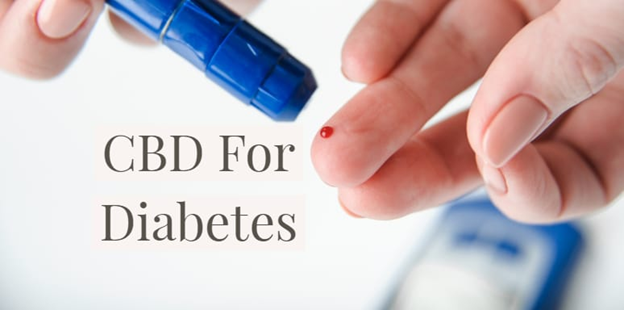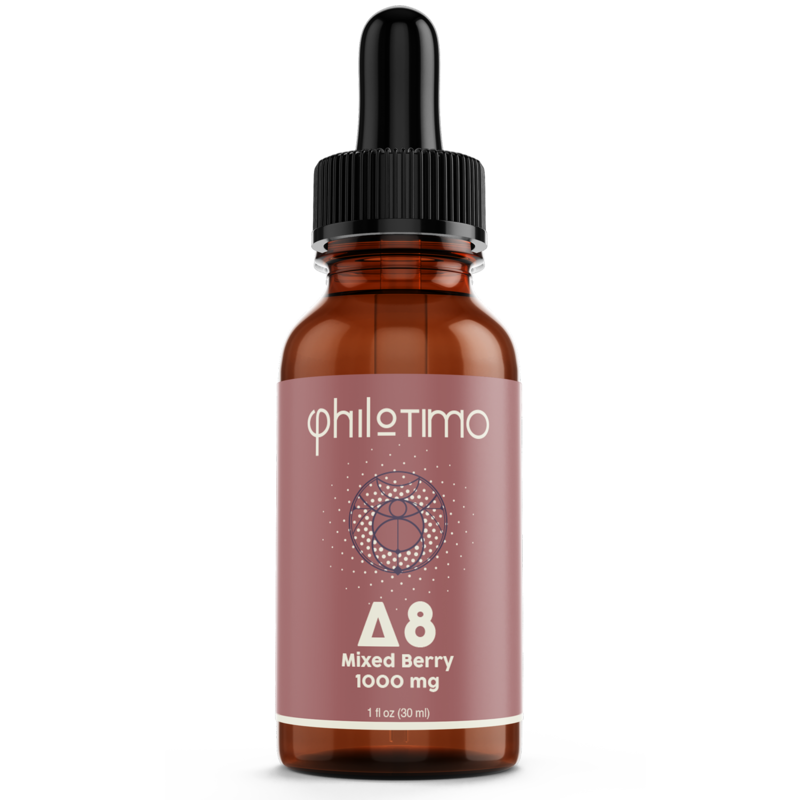
CBD OIL FOR DIABETES TYPE 1 AND TYPE 2 - EXPLAINED WITH PROOFS
The analgesic and anti-inflammatory properties of CBD make it an excellent ally against diabetes. Diabetes is a disease characterized by the uncontrolled production of sugars in the blood that affects millions of patients worldwide. This non-contagious disease affects children, adolescents, adults, and the elderly alike. Diabetes is becoming more and more common, especially type II diabetes in older patients.
The most unfortunate thing about diabetes, at least in its type II, is that we can avoid this disease by maintaining a healthy lifestyle, a proper diet, and an active daily routine. Now, what does Cannabidiol (CBD) have to do with diabetes? Could this powerful cannabinoid have positive effects on this disease?
CBD and its medical importance today
Cannabidiol or CBD is one of the main cannabinoids in the cannabis plant. One of its main characteristics is that it can interact with our Endocannabinoid System without producing psychoactive effects. It is a safe compound, and according to several recent scientific studies, it does not cause any addiction.
CBD is a cannabinoid capable of helping the body reduce the sensation of pain and muscle inflammation. It can bring many benefits to the body, such as positive results in controlling nausea and anxiety and reducing the neurodegenerative effects of some serious diseases such as Parkinson’s and Alzheimer’s. In fact, at present, there are already CBD-based drugs that are legally marketed and specially prescribed for the control of the symptoms of some rare types of epilepsy.
What is diabetes, and what are its different types?
Diabetes Mellitus is a disease characterized by the loss of the body’s control over blood sugar production levels. It is associated with the appearance of other problems in various body systems, such as loss of vision, nephropathies (kidney), poor circulation in the extremities, coronary heart disease, and complications in the peripheral and autonomic nervous system. Given the increasing incidence of this disease, it can put a significant burden on health systems.
The main symptoms of diabetes are excess urination (polyuria), increased appetite (polyphagia), and increased thirst (polydipsia). In most cases, progressive weight loss also occurs. Over time, diabetes can lead to a significant reduction in the quality of life of patients.
There are different types of diabetes, the most used classification is the following:
Type I Diabetes
Type I diabetes is an autoimmune disease that manifests itself from an early age. It occurs when the body begins to attack healthy cells that regulate blood sugar production for no apparent reason. It is estimated that between 5 and 10% of cases belong to this group.
As it is an autoimmune disease, its control is more difficult. That is why patients who suffer from it are subject to daily monitoring of the disease, which may include continuous insulin injections, strict diets, and periodic medical controls. Also, these types of patients are prone to continuous headaches and severe fatigue.
Type II diabetes
Unlike Type I diabetes, Type II diabetes is not an autoimmune disease. On the contrary, it is an avoidable disease that ends up manifesting in those patients who, throughout their lives, have maintained an unbalanced diet, a sedentary lifestyle, or have suffered from morbid obesity. This type of diabetes is the most common and accounts for more than 90% of cases.
The control of the disease will depend on how advanced the diabetes is and can be as rigorous as in the case of Type I diabetes or, if detected early enough, less rigorous, limiting itself to dietary recommendations and improvements in daily routine activity. Likewise, although it is not necessarily a hereditary disease, children of patients with diabetes undergo a periodic check-up with profiles that detect the appearance of this disease.
Gestational diabetes
This type of diabetes is rare and occurs during pregnancy, usually during the second or third trimester. Although it can pose a serious risk to mother and newborn, it is almost always transient and disappears after delivery. In recent years, interest in CBD has increased, and numerous products with a high content of CBD have appeared on the market.
How is CBD related to diabetes?
According to the latest medical research, CBD has been tested successfully as an alternative treatment for various pathologies, mainly reducing muscle inflammation and chronic pain. Furthermore, the anxiolytic and anti-stress properties of Cannabidiol are perfect for reducing insomnia and anxiety.
The effectiveness of CBD is due to its interaction with specific receptors of the Endocannabinoid System. Now we know that this system is responsible for maintaining the body’s homeostasis or the ability to maintain a stable internal condition. This regulatory system intervenes in processes as important as sleep, pain, inflammation, reproduction, appetite, or blood sugar level.
Diabetes, both in Type I and Type II, is also characterized by inflammation of different vital organs such as the pancreas. Therefore, CBD could be an effective treatment, not in the direct control of diabetes, but some of its secondary physical expressions, helping alleviate discomfort in the patient’s daily life.
Scientific studies on CBD and diabetes
Scientific studies investigating the use of CBD as a possible treatment for Diabetes Mellitus are growing in number. Prestigious scientific teams worldwide try to explain the mechanisms and metabolic pathways that CBD follows in the body. Given the enormous incidence of diabetes globally, the use of Cannabidiol, a safe substance without side effects, can be an excellent ally against the main symptoms of the disease.
Cannabidiol or CBD was effective in reducing anxiety and improving the quality of sleep. It is also totally safe – it is not addictive, and it does not produce adverse side effects.
The main preclinical studies in animals and cells demonstrate the benefits of CBD against diabetes. Let’s highlight a few:
- In 2006, a team demonstrated that CBD reduces retinal inflammation in patients with diabetes.
- One of the first studies on laboratory mice, conducted in 2007 in Israel, shows that CBD reduces the disease’s incidence and progression.
- Another interesting study in mice from 2010, carried out in Canada, manages to demonstrate the reduction of neuropathic pain associated with diabetes after the administration of Cannabidiol. Also, in 2010, a study related CBD to reducing heart damage.
- CBD reduces oxidative stress and the inflammatory response, as demonstrated by a 2008 preclinical study in Israel.
- A 2012 study by a team of Italian researchers also obtained positive results in CBD use against neuropathic pain that appears in patients with diabetes.
- In 2016, several preclinical studies were carried out, including the one carried out in Northern Ireland that investigated how certain drugs that bind to CB1 and CB2 receptors reduce blood glucose and insulin in rats with diabetes.
- A study carried out in Brazil in 2019 showed that CBD reduces neuroinflammation effects that most diabetic patients present.
- Preclinical laboratory studies with an interesting case review carried out in 2019 by a team from India demonstrate the CB2 2 receptor’s therapeutic potential in the treatment of diabetes mellitus and its complications.
Regarding clinical trials in human patients, there is also an extensive scientific literature. These are the most interesting:
- A study of 4657 participants in the United States (2013) indicated that the use of cannabis is associated with lower blood glucose and greater insulin sensitivity.
- Another ambitious 2016 study conducted at the Karolinska Institute in Stockholm in Sweden on 17,967 patients found no association between marijuana use and type 2 diabetes development.
- One of the first human clinical studies was conducted in 2010 at the Royal Hallamshire Hospital, Sheffield in the UK. This randomized, double-blind, placebo-controlled clinical trial used a sample of 30 patients with neuropathic pain associated with diabetes and was given Sativex, the first THC- and CBD-based drug. Although the results were not conclusive, this study laid the foundations for those carried out later.
- Another similar study with Sativex from 2014 also in the UK and conducted on 380 patients, showed that most patients felt beneficial effects on pain and sleep.
- In 2012, a double-blind, placebo-controlled clinical study showed that THC in the form of the drug Nabilone effectively reduced pain in 13 diabetic patients.
- More recently, in 2015, a study was conducted at the University of California on 16 patients after smoking THC. A reduction in pain complications with diabetes was shown.
It is important to clarify that, so far, there are no definitive results on these studies. Therefore, there is still no final consensus on the usefulness or not of CBD to help control this terrible disease’s side effects that affect millions of patients around the world daily. Hopefully, in the coming years, new clinical trials will appear to fully clarify the relationship between CBD and the disease Diabetes Mellitus.
Summary of CBD benefits against diabetes
As we have seen, numerous medical studies demonstrate the efficacy of cannabinoids for the treatment of diabetes and its main symptoms. These are the main benefits of using CBD to alleviate this terrible disease:
- CBD has great therapeutic potential as an anti-inflammatory of the pancreas in patients with type 1 diabetes.
- The analgesic and anti-inflammatory properties of Cannabidiol are very effective in reducing pain derived from diabetic neuropathy.
- Both CBD and THC can regulate appetite and food intake. This means that taking phytocannabinoids could reduce obesity, regulate blood sugar, and prevent type 2 diabetes.
Can I use CBD as an alternative for diabetes?
Nowadays, CBD can be purchased in specialized stores in a totally legal way in its different presentations and without practically any restrictions in most countries. The most common form of consumption is the administration of CBD Oil in drops, but it is not the only one. You can also use it in vape in the form of E-Liquid or even smoke it as Hemp Flowers. CBD products are totally natural and safe. They do not cause psych0-activity or adverse side effects, so people of any age can use them.
Conclusion
It is important to remember that if you have been diagnosed with Type I or Type II diabetes, it is best to go to the doctor and start appropriate treatment. Considering that CBD has shown positive results on the control of some symptoms associated with diabetes type 1 and type 2, we recommend that you consult with your doctor about the possibility of consuming this legal cannabinoid as a complement to traditional treatment. It is important to emphasize again that CBD is a non-psychoactive cannabinoid. In other words, it does not produce any “high effect” on consumers; it also does not generate addiction and, therefore, does not create withdrawal symptoms if consumption is abruptly discontinued.






Leave a comment
This site is protected by hCaptcha and the hCaptcha Privacy Policy and Terms of Service apply.